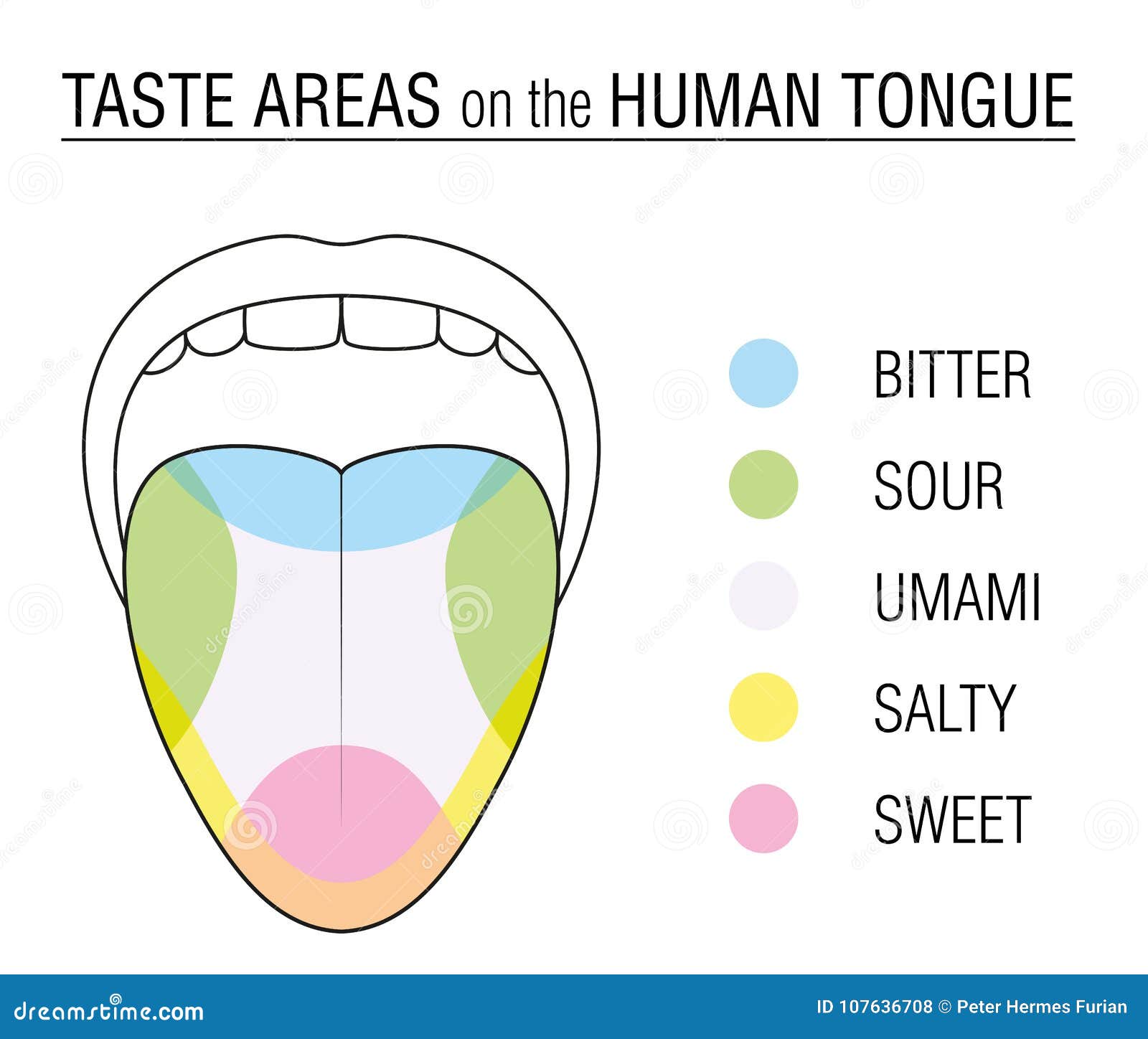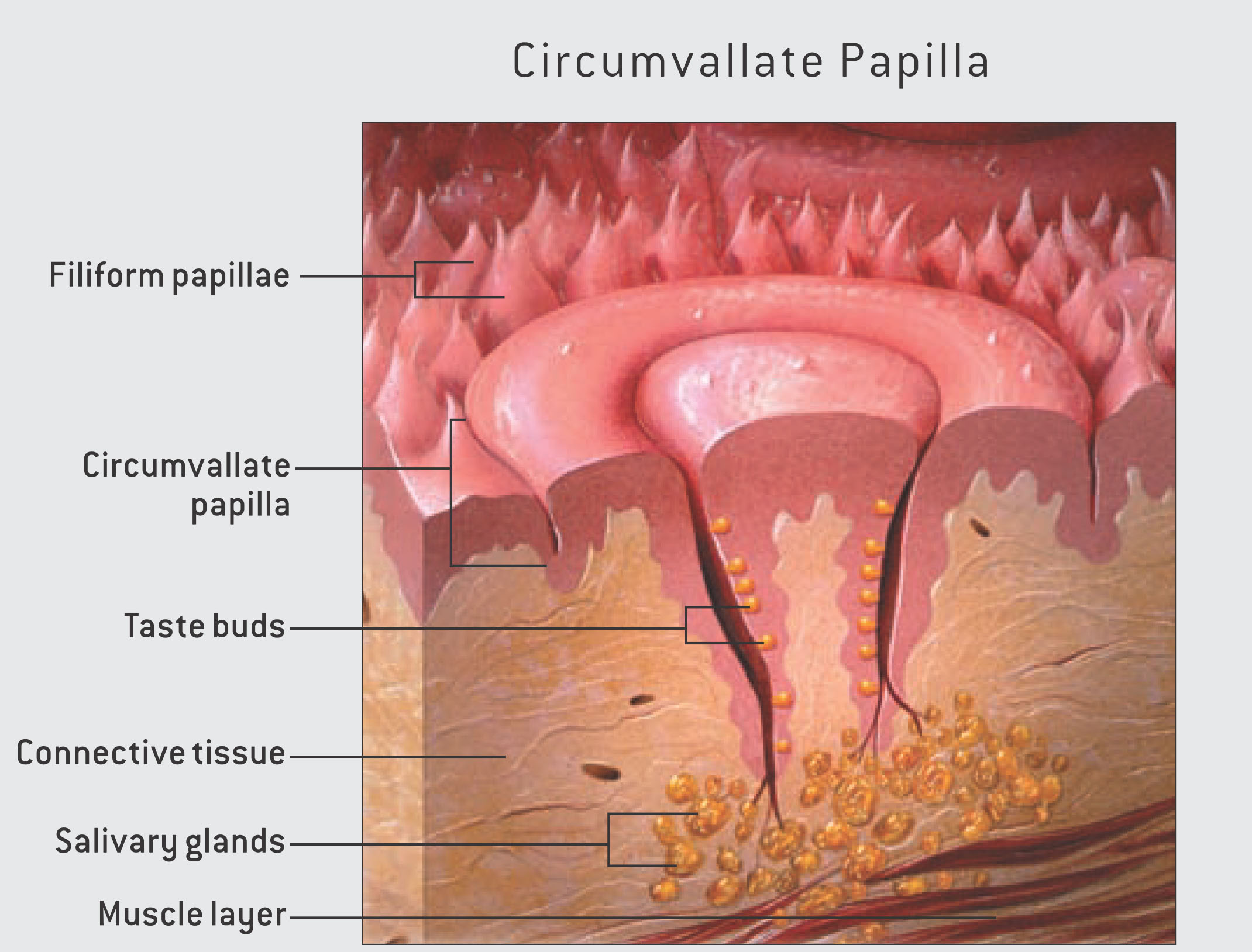

A taste bud consists of several different types of cells, which help determine the flavor of the food. The taste buds in the other three papille distinguish the flavors received on the tongue. Despites the filiform’s importance, the tongue would not sense taste without the other three papillae. Nonetheless, filiform papillae’s abundance is necessary, for they have the important role of gripping food. Papillae can help with determining taste, however, the most common type of papillae does not contain taste buds. They each have functions that range from increasing surface area, to sensing temperature. There are four distinct papillae which look like small or large bumps on the tongue. The tongue contains balls of taste bud cells within lumps called papillae. The method for tasting certain qualities from foods is caused by a process between cells, nerves, and the brain. These five tastes can help determine the quality and validity of the food. But loss of smell is also reported with aging.Taste is known to have five distinct qualities: bitter, salty, sour, sweet, and savory (umami). While the tongue only detects a handful of flavors, the nose detects thousands of smells and is intimately related to the ability to detect the tastes we associate with certain foods. "Sometimes people who come in complaining of a loss of taste are actually losing their sense of smell," says Parnes. (The condition is called anosmia, and Parnes figured out he had it at 8 years old, when his friends would complain about odors that he couldn't detect at school.) Parnes sympathizes with people with a dampened sense of taste, because he's never had a sense of smell. Parnes says based on his clinical observations, the amount of loss varies from one individual to another, but women generally report losing taste in their 50s and men in their 60s. In addition, some kinds of medication can interfere with taste. Though taste buds generally seem to be good at regenerating even with age, older taste buds are less adept at regenerating after injury. This penchant for regeneration is why one recovers the ability to taste only a few days after burning the tongue on a hot beverage, according to Parnes.Īging may change that ability. "You lose all your senses as you get older, except hopefully not your sense of humor," says Steven Parnes, an ENT-otolaryngologist (ear, nose and throat doctor) working in Albany, N.Y.Ī taste bud is good at regenerating its cells replace themselves every 1-2 weeks. But they probably don't think to add taste and smell to the list. When people think about growing older, they may worry about worsening vision and hearing.

"When we would tease him, he would shrug his shoulders and just say he liked it." But Hunt's father, a retired registered nurse, had a theory: Her grandfather liked strong flavors because of his old age and its effects on taste. "I remember teasing him because he literally put ketchup or Tabasco sauce on everything," says Hunt.


For example, Amy Hunt, a stay-at-home mom in Austin, Texas, says her grandfather cultivated some unusual taste preferences in his 80s. Sometimes people develop strange eating habits as they age. You're born with roughly 9,000 taste buds, and they're very good at regenerating - which is why you can recover the ability to taste just days after burning your tongue.


 0 kommentar(er)
0 kommentar(er)
